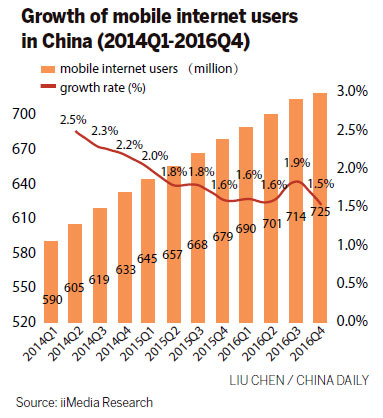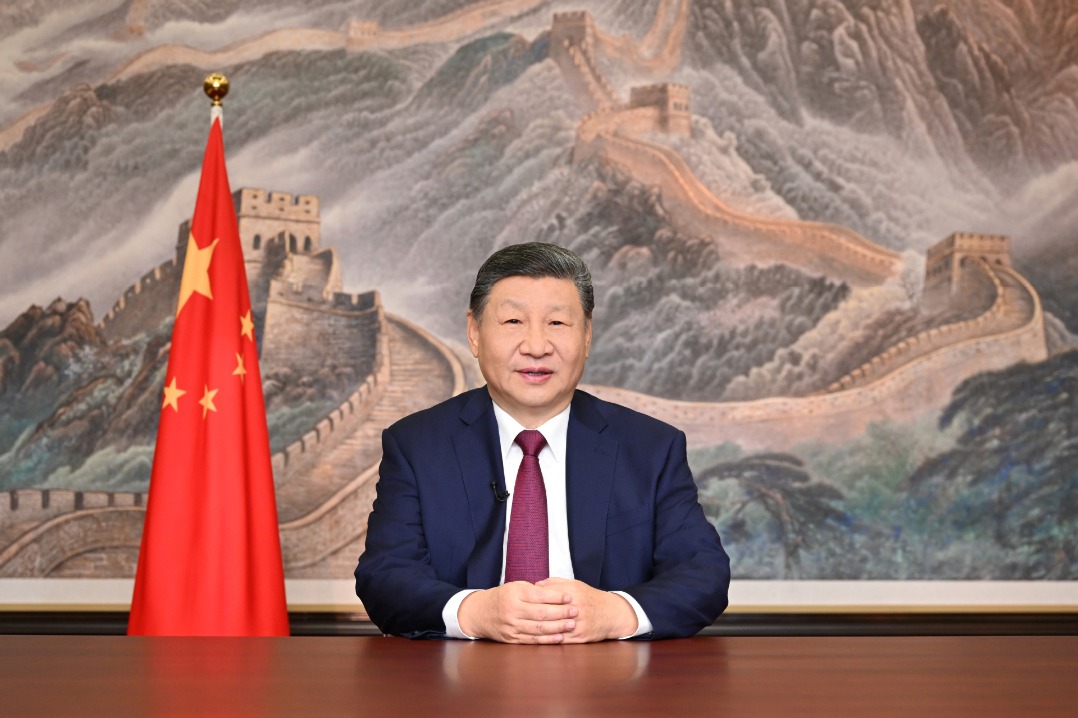World provides smorgasbord for Chinese app startups

Domestic giants, tough competition at home prompt enterprising firms to look overseas
Severe competition and the presence of giants in the domestic market has pushed smaller Chinese app developers to chase success in overseas markets.
Some of them have tasted success already. For instance, Musical.ly, an online social networking app based on music videos, has drawn media attention in China recently, after reports appeared about its popularity among young people overseas, especially in the United States.
Louis Yang, co-founder and co-CEO of Musical.ly Inc, said the app - which was launched in 2014 - has almost 15 million active daily users and more than 150 million registered users.
| Musers (users of Musical.ly) perform at a show to mark Local Video Day in Berlin in August 2016. Provided to China Daily |
More than 35 percent of Musical.ly's users are from the US, its single largest national market. Europe collectively accounts for almost 40 percent of users.
Global investors have poured $150 million (140 million euros; 120 million) into it, including over $120 million in the latest C round of funding in May 2016.
"We'll focus on overseas markets. After the US and Europe, we'll give more attention to the emerging internet markets such as South America, Southeast Asia and India. The potential for growth in those emerging markets is huge," he says.
Asked about the company's strategy in China, Zhu Zinan, vice-president of Musical.ly, says the company hasn't yet decided whether or not it will launch in the home market.
China had 725 million mobile internet users in 2016, according to a report by the iiMedia Research, a global mobile internet firm focusing on third-party data mining and analysis.
Globally, there were 5.2 million smartphone apps in 2016, 19.1 percent more than that the previous year. In China, the most popular apps are used for social communication, news, information, videos and live streaming.
Xue Yongfeng, a senior internet industry analyst at Beijing-based consultancy Analysys, says that although Chinese app developers have accumulated rich technical and market experience after years of development, a mature market as it exists today has many powerful players, squeezing the room for startups to thrive.
For example, BAT - an acronym for Baidu, Alibaba and Tencent, the three biggest Chinese internet giants - owns the country's largest shopping and payment apps. There are also dominant apps in weather, gaming, taxi-hailing, video streaming, image processing and video sharing.
"Some app developers tend to look for a blue ocean overseas - created by uneven development of the global internet market - where they could mix their China-based experience with local features to become successful," he says.
Edward Tse, founder and CEO of Gao Feng Advisory Co, a global strategy and management consultant, says that big companies such as BAT have dominated China's internet market and penetrated almost all areas of the internet ecosystem, which means startups in China face direct competition from the big boys.
However, China's recent rapid economic growth has spawned many commonly used internet innovations that are not seen in other markets. That provides great opportunities for startups, according to industry observers.
"Some entrepreneurs will focus on niche markets overseas; some will target countries where the internet infrastructure and market are not yet mature," he says. "Some will take China's latest innovations and business models overseas. For example, the bicycle-sharing service has been expanded to Singapore, the UK and Silicon Valley."
The SHAREit app, which enables users to share files between multiple operating systems - Android, iOS, Mac, Windows, WinPhone and PC - with no need for conversion, is another example.
The app could send a wireless signal to the recipient so the files can be shared without an internet connection, which makes it very popular in countries where the internet infrastructure is not yet mature and the expense of mobile internet is still unaffordable for many people.
Qiu Jun, chief operating officer of the Beijing-based developer SHAREit Technologies Co, said during the 2nd ChIndia TMT Dialogue on March 16 in Beijing that the app now has more than 1 billion users globally. The number of monthly active users is about 380 million on average.
The company's growth mainly comes from India and Indonesia, where the app is a must-have, with more than 80 percent of its internet customers using it. In India alone, the number of users is more than 250 million.
Qiu says that when many Chinese companies go to India, they simply bring the Chinese business model there, but he urges them to localize their products based on local users' habits and cultural traits. SHAREit has even released some reports on the India smartphone segment, its religions, culture and user preferences to help Chinese companies that are keen to enter the country.
"Now more companies understand that when you enter India or the Middle East, they need to consider tailor-made products," he says.
Tse says many Chinese companies that have achieved success overseas owe it to developers who not only have Chinese DNA but an overseas background or work experience. This combination of factors has helped them to understand the values held by overseas users, and to design products that connect to them.
In late 2014, Adham Baodunnov, who belongs to the Uygur ethnic group in China and speaks Turkish, founded the Gundem news platform, an online news aggregator that has more than 10 million users now. Gundem boasts about 1.2 million daily active users in Turkey. The number of users has been growing since the launch.
Baodunnov says success did not come easy. First, since 2013, he tried to launch several Chinese internet innovations, such as group-buying and takeout apps in Turkey. But such attempts did not yield the desired results.
Undaunted, he launched the online news aggregator app, a niche that has a mature business model in China.
Bingo! Gundem clicked in Turkey, he says.
He says two things led him to Turkey. First, the culture and language of Turkey have certain similarities to those of the Uygur ethnic group. Second, he had researched many markets, including Japan, the United States, Kazakhstan and Uzbekistan, and found that Turkey's internet market had great potential and was open and ready to accept new things.
He says China has many advanced internet technologies, various kinds of online innovations and successful business models, which people in many parts of the world are not familiar with.
This advantage could be leveraged to develop internet-based businesses in other countries, he says.
Ouyang Shijia contributed to this story.
chenyingqun@chinadaily.com.cn

(China Daily European Weekly 04/07/2017 page26)
Today's Top News
- Confidence, resolve mark China's New Year outlook: China Daily editorial
- Key quotes from President Xi's 2026 New Year Address
- Full text: Chinese President Xi Jinping's 2026 New Year message
- Poll findings indicate Taiwan people's 'strong dissatisfaction' with DPP authorities
- Xi emphasizes strong start for 15th Five-Year Plan period
- PLA drills a stern warning to 'Taiwan independence' separatist forces, external interference: spokesperson































